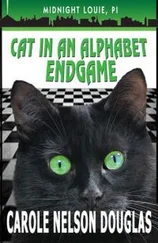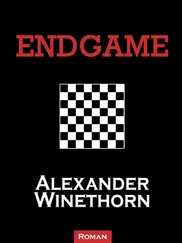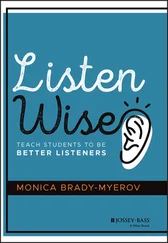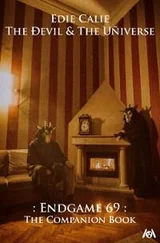In the second half of the tournament Bobby won five games straight, and it was certain that he’d be among the prizewinners. But could he win the title? Several players in the tournament had come down with the flu—including Bobby’s teacher, Jack Collins—and had to forfeit games. Bobby tried to keep himself fit by getting enough sleep, eating healthfully, and staying in his room as much as possible, away from the other players. As it developed, the flu forfeits didn’t affect Bobby’s pairings or score.
In the final round Bobby had to face Walter Shipman, the man who’d first welcomed him at the Manhattan Chess Club. Shipman had a reputation as a fearsome and stubborn player. The game didn’t evolve to Bobby’s liking, so he offered Shipman a draw on the eighteenth move. It was quickly accepted. Bobby had a score of 10–2 and hadn’t lost a game. Arthur Bisguier, the highest rated player in the tournament, also finished with a score of 10–2. Who then was to be the United States Open Champion?
Bobby, Bisguier, and about twenty other players and spectators stood around the tournament director’s desk as he applied the tie-breaking system to determine the winner. The ideal way to break a tie is to have a play-off between the two players. However, in American tournaments, where hotel ballrooms are rented and contracted for a specified period and players have made arrangements for flights home, it’s necessary to apply a tie-breaking system to determine the winner. There are many such systems used in tournaments, and they’re as complicated as abstract mathematical theorems. Few are applied without controversy.
While they were waiting for the results, Bisguier asked Bobby why he’d offered the draw to Shipman when he had a slight advantage and the outcome wasn’t certain. If Bobby had won that game, he would have been the tournament’s clear winner, a half point ahead of Bisguier. Bobby replied that he had more to gain than lose by the decision. He’d assumed that Bisguier would either win or draw his own game, and if so, Bobby would have at least a tie for first place. That meant a payday of $750 for each player, a virtual gold mine for Fischer. Recognizing Bobby’s greater need for money than the capture of a title, however prestigious, Bisguier noted: “Evidently, his mature judgment is not solely confined to the chessboard.”
The tournament director continued to make calculations, finally looking up and declaring that Bisguier had won. Bobby, crestfallen, recalled: “I went to the phone booth and called my mother to tell her the bad news. In the booth next to me was Bisguier, phoning his good news to his family.” After that, both players returned to the tournament hall to watch the conclusions of the other games.
After two hours had passed during which people congratulated Bisguier as the champion, the tournament director announced that he’d made a mistake in the calculations. Under the Median System of tie-breaking, which was to be used in all tournaments conducted by the United States Chess Federation, all of the scores of all of the opponents of the players who are tied are totaled, the top two and the lower two are deleted, and whoever played the highest rated (and therefore more difficult) opponents would be declared the winner. Under this system, Fischer emerged a half point higher than Bisguier. But wait a minute, argued Bisguier: Fischer’s first game was won by a forfeit; his opponent didn’t show up, so he didn’t even play the game! If that game was discounted, he claimed, then he would be the winner. The counterargument was that the forfeited player in the first round was of such a low rating that it would have been almost statistically impossible for Bobby to have lost the game, and the result would have been discounted anyway. Back to the telephone booths.
This time, Bobby told Regina the good news, admitting that even though he was splitting the prize money with Bisguier, “it was the title that really mattered.” One wonders, then, why he didn’t fight for the win against Shipman and win the title outright.
No one as young as Bobby had won the United States Open before, and no one had ever held the United States Junior and Open titles concurrently.
When Bobby returned to New York, both the Marshall and Manhattan chess clubs conducted victory celebrations, and he was lauded as America’s new chess hero. Even Bisguier, not prolonging any resentment, proclaimed Bobby Fischer as the strongest fourteen-year-old chess player who had ever lived.

After a summer of chess, Regina insisted that Bobby devote more attention to his sporting interests. So he swam at the YMCA and began to take tennis lessons, while also playing on the free city-owned courts. He hated going to the free courts, since it took two buses to get to the closest one, and then he’d have to wait sometimes for more than an hour to get a game. Nevertheless, he continued to play into late fall, until the weather became too cold and damp. Mother and son looked into his joining an indoor tennis club for the winter months, but when they discovered there was an initiation fee and a $10-per-hour charge, “it was, of course, ridiculous for us to consider,” Bobby lamented.
Returning home from school one afternoon in September, Bobby sorted through his mail. He’d started to receive fan letters and requests for photos, autographs, even some selected game scores to autograph and inscribe—not just from the United States but from different corners of the globe. The letters didn’t pour in at the level experienced by Hollywood stars, but hardly a day would go by that several pieces of request mail did not arrive at 560 Lincoln Place. Additionally, Bobby regularly received unsolicited advice from fellow chess players, as well as offers from companies that wanted him to sponsor products. Sporadically, Bobby would select a letter at random and reply with a personal note. To speed up the “fan relations” process, Regina had Bobby’s photograph placed in an inexpensive greeting card on which was printed his signature, and she’d mail that out to the various requesters. She also responded to the commercial offers, but for reasons of his own, Bobby showed almost no interest in them, whatever the price offered.
One letter he almost skipped over came in an envelope on which was imprinted the Manhattan Chess Club logo. When he opened it, all he could do was smile:
Mr. Robert J. Fischer
560 Lincoln Place
Brooklyn, 38, N.Y.
New York, September 24, 1956
Dear Mr. Fischer:
You are hereby invited to participate in the Lessing J. Rosenwald Tournament for the United States Championship, co-sponsored by the United States Chess Federation and the American Chess Foundation.
This tournament will also be the official Zonal Tournament of FIDE in its World’s Championship competition.
The tournament will be held in New York City at the Manhattan Chess Club from December 15, 1957, to January 6, 1958. There will be fourteen participants. The playing schedule is enclosed herewith.
Please advise us at your earliest convenience but not later than October 10, 1957, whether or not you will participate in this tournament. If we do not receive your acceptance by October 14, 1957, we will assume that you are declining this invitation.
THE TOURNAMENT COMMITTEE
M.J. Kasper, Chairman
Walter J. Fried
I.A. Horowitz
William J. Lombardy
Edgar T. McCormick
Walter J. Shipman
As the newly reigning United States Open Champion, and a participant in the Rosenwald the previous year, Bobby had anticipated getting this invitation for the 1957 tournament. What particularly intrigued him, though, was that this tournament would be the qualifying tournament for the Interzonal, which was the beginning of the path to the World Championship. Interzonal tournaments were only held every four years, and this coming year happened to be the year. He should have been thrilled with the invitation, but he faced a conflict, and thus was forced to puzzle out what to do.
Читать дальше
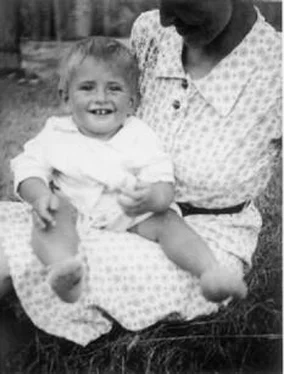


![Антон Текшин - EndGame [СИ]](/books/394477/anton-tekshin-endgame-si-thumb.webp)
